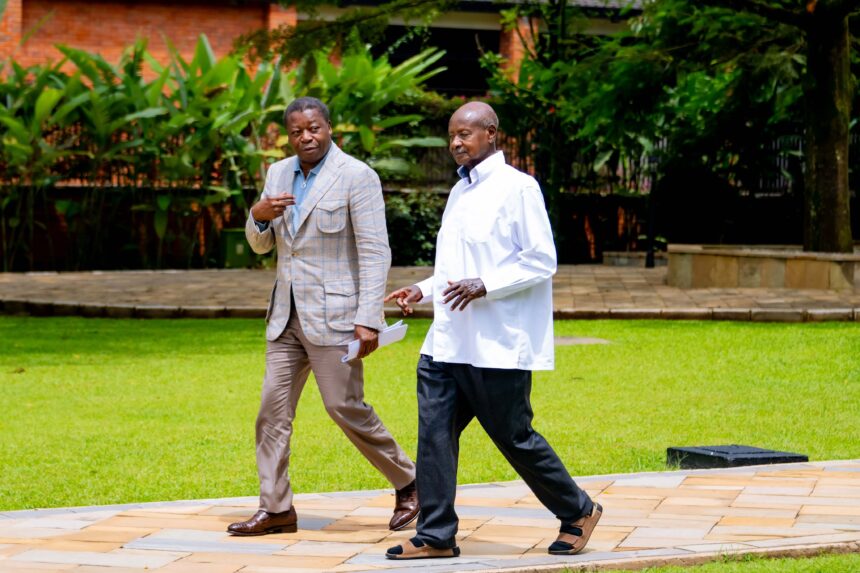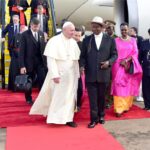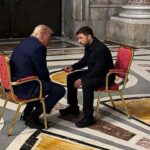Togolese President Faure Essozimna Gnassingbé, appointed by the African Union as the official mediator in the escalating conflict between the Democratic Republic of Congo (DRC) and Rwanda, arrived in Uganda on Monday, April 21, for key diplomatic talks with President Yoweri Museveni.
As part of his high-level mediation tour across the Great Lakes region, President Gnassingbé’s visit to Uganda marks another critical step in his efforts to de-escalate tensions between Rwanda and the DRC. Welcomed by President Museveni at State House, the two leaders held a closed-door meeting focusing on regional security, bilateral cooperation, and pathways to peace in eastern Congo.
“I welcomed H.E. Faure Essozimna Gnassingbé, the President of Togo, who is here on a working visit,” Museveni shared. “We discussed issues of mutual interest between our two countries and regional security.”
The visit follows earlier stops in Luanda, Kinshasa, and Kigali, where President Gnassingbé engaged with Presidents João Lourenço of Angola, Félix Tshisekedi of the DRC, and Paul Kagame of Rwanda, respectively. These meetings have focused on the growing humanitarian crisis and the persistent violence in eastern DRC, largely attributed to rebel activities, including the M23 movement allegedly backed by Rwanda.
Sources close to the AU mission describe Gnassingbé’s role as vital in building consensus around a regional peace framework, particularly as the conflict continues to destabilize key border areas and heighten diplomatic strain between neighboring states.
President Museveni’s role as a senior regional leader adds weight to the ongoing efforts, with Uganda positioned as both an influencer and stakeholder in regional stability.
Observers see this visit as part of an intensifying push by the African Union to assert leadership in conflict resolution on the continent and avert further internationalization of the Great Lakes conflict.
With the situation on the ground remaining fragile, President Gnassingbé’s diplomatic shuttle underscores the urgency of African-led solutions and the need for cohesive dialogue to pave the way for long-term peace and security in the region.







